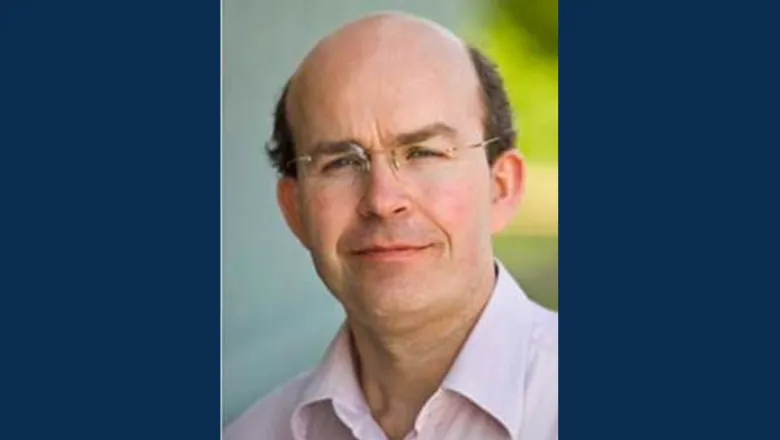
Professor Tim Hubbard
Professor of Bioinformatics
Biography
I studied Biochemistry at the University of Cambridge, followed by a PhD in Protein Design at the Department of Crystallography, Birkbeck College, University of London. Following a postdoctoral fellowship at the Protein Engineering Research Institute in Osaka under the EU scientific training program in Japan, I returned to Cambridge in 1990 as a Zeneca Fellow at the MRC Centre for Protein Engineering to work on protein folding, classification and design.
I co-founded SCOP (the Structural Classification of Proteins database) and developed algorithms to make protein structure predictions and assess their accuracy and to calibrate the reliability of sequence alignment methods. I was one of the most successful participants in the first CASP (Critical Assessment of Structure Prediction) competition in 1994 and a co-organiser of subsequent CASP competitions (CASP2-CASP7) until 2007.
In 1997 I joined the Wellcome Trust Sanger Institute to become Head of Human Genome Analysis, where I was one of the organisers of the sequencing of the human genome. In 1999 I co-founded the Ensembl project to analysis, organise and provide access to the human genome. From 2007 I led the GENCODE project to annotate the structure of all human genes, initially as part of the ENCODE project. I was the Sanger Institute PI of the Genome Reference Consortium, which is responsible for reference genome sequences of human, mouse and zebrafish. I became Head of the Informatics division from 2007. After the announcement of the 100,000 genomes project 2012 I was seconded part-time as a specialist advisor for genomics to NHS England leading up to the creation of Genomics England.
In October 2013 I was appointed Professor of Bioinformatics and Head of the Department of Medical & Molecular Genetics at King's College London and Director of Bioinformatics for King's Health Partners with a part-time secondment as Head of Genome Analysis at Genomics England.
In 2018 I was also appointed as Associate Director (King's) for the Health Data Research London Site.
Research

Statistical and Computational Genetics and Genomics (SCGG) RIG
The SCGG Group brings together researchers at King’s who are developing and working with innovative quantitative and computational approaches for genomic discovery and its impact on human health.
News
Professor Tim Hubbard announced as the next ELIXIR Director
Professor Tim Hubbard will be responsible for leading ELIXIR’s technical and scientific programmes

Professor Tim Hubbard appointed to prestigious WHO Technical Advisory Group
Professor Tim Hubbard has become one of fifteen appointees to the new Technical Advisory Group (TAG) on Genomics.

Features
Sequencing, now more than ever
65 years after the death of Rosalind Franklin and 70 years since the publication of the structure of DNA, the impact of the discovery continues to grow. The...

Rosalind Franklin: How her legacy lives on
This weekend, July 25th, marks 100 years since the birth of Rosalind Franklin, one of history’s leading scientists. While working at King’s, Franklin famously...

Utopia Now! Local young people set out their visions for the future
King’s researchers help young people explore their hopes and fears for the future

The secret of life - part 2: AI provides a solution to the protein folding problem
AI provides a solution to the protein folding problem which scientists have been hunting for 50 years

Research

Statistical and Computational Genetics and Genomics (SCGG) RIG
The SCGG Group brings together researchers at King’s who are developing and working with innovative quantitative and computational approaches for genomic discovery and its impact on human health.
News
Professor Tim Hubbard announced as the next ELIXIR Director
Professor Tim Hubbard will be responsible for leading ELIXIR’s technical and scientific programmes

Professor Tim Hubbard appointed to prestigious WHO Technical Advisory Group
Professor Tim Hubbard has become one of fifteen appointees to the new Technical Advisory Group (TAG) on Genomics.

Features
Sequencing, now more than ever
65 years after the death of Rosalind Franklin and 70 years since the publication of the structure of DNA, the impact of the discovery continues to grow. The...

Rosalind Franklin: How her legacy lives on
This weekend, July 25th, marks 100 years since the birth of Rosalind Franklin, one of history’s leading scientists. While working at King’s, Franklin famously...

Utopia Now! Local young people set out their visions for the future
King’s researchers help young people explore their hopes and fears for the future

The secret of life - part 2: AI provides a solution to the protein folding problem
AI provides a solution to the protein folding problem which scientists have been hunting for 50 years

